What are you looking for ?
Content on this site
A person on the directory
Catalog training
Content on this site
A person on the directory
Catalog training
Axis 1 “Vulnerabilities and risks”
Scientific leaders of axis 1: Valérie Inés de la Ville – valerie.ines.de.la.ville@univ-poitiers.fr and Michel Audiffren – michel.audiffren@univ-poitiers.fr
Axis 1 of the MSHS is organized into 4 themes focused on risks and vulnerabilities related to individuals (microsocial level), organizations and companies in the socio-economic and cultural world (mesosocial level) and national and international policies (macrosocial level). Six laboratories of the MSHS in Poitiers collaborate to develop interdisciplinary research actions within the framework of these four themes (CeRCA, CRIEF, CEREGE, MAAP, CRIHAM, CECOJI and MIGRINTER).
The first theme is at the microsocial level and is entitled “Cognitive Vulnerabilities of Seniors and Remediation”. It involves two teams from the CeRCA (UMR 7295) and requires the cross-examination of the Humanities and Social Sciences and the Life Sciences. It is being developed in close collaboration with the Institute of Cognitive and Integrative Neuroscience of Aquitaine (UMR 5287) in Bordeaux and the Disability, Activity, Aging, Autonomy, Environment laboratory in Limoges. The objectives of the theme focus on the study of the potential beneficial effects of training these cognitive functions in seniors through physical activity and mindfulness exercises in order to improve their brain and cognitive health.
The second theme is articulated between the microsocial and the mesosocial levels and is entitled “Transitions, Markets and Societies”. The theme brings together researchers from CEREGE (Management Sciences), MAAP (Philosophy) and CERES (Language Sciences) in Limoges in an interdisciplinary work aimed at analyzing: (a) the role of market devices and discourses in the socialization process of young consumers; (b) the role of third-party knowledge providers (e.g., experts, parents) in the formation and legitimization of market innovations in a context of uncertainties related to energy, climate, economic and social transitions; (c) controversies related to the societal role of marketing in a context of transition towards degrowth or sobriety; (d) the dematerialization of commercial relationships and its consequences on the protection and use of consumer data; (e) the challenge of the precautionary principle and new forms of social acceptability of risk in a commercial context.
The third theme is articulated between the mesosocial level and the macrosocial level and is entitled “Risks and financial transitions”. The theme brings together researchers from the CRIEF (Economic Sciences) and CEREGE (Management Sciences) laboratories and focuses on companies in the social and solidarity economy and banks, of the capitalist or mutual type, in the face of the transition involved in adapting to a crisis situation and managing its consequences. The research carried out combines an analysis of the sources of risk and the search for an optimal response in terms of monetary policy to deal with a sudden risk of inflation caused by a shock to the price of raw materials, such as oil or foodstuffs.
The fourth theme is at the interface of the three levels of analysis micro, meso and macro and is entitled “Public policies on water-related risks”. The theme brings together researchers from CRIHAM (History), MIGRINTER (Geography) and CEREGE (Management Sciences) and is interested in the forms of political, economic and social transitions related to water and its uses. This includes problems of submersion, water management in the context of urbanization and firefighting and drowning prevention.
Axis 2 “The boundaries of the body”
Scientific Director of Axis 2: Lydie Bodiou – lydie.bodiou@univ-poitiers.fr
This axis concerns a complex object that crosses all disciplines and intends to question the body and its “boundaries”, as a concrete carnal envelope, as well as social imaginaries, through all media and genres (scientific articles, novels, comics, theatre, cinema, etc.). It also addresses issues selected to the sick body (with the collaboration of the health sciences), bodily violence against women, as well as the staging and performance of the body.
Axis 3 “Mobility, cultural and linguistic heritage”
(co-scientific directors: André Magord, Adelina Miranda, Freiderikos Valetopoulos,)
This axis of the MSHS is rooted in a long tradition of research developed within the University of Poitiers on the issues of mobility, migration, interculturality, pluri-/multilingualism and heritage. It brings together three laboratories: Migrinter, MIMMOC and Forellis and promotes collaboration with other structures of the University of Poitiers
Migrinter is a Joint Research Unit specialising in the study of international migration created in 1985 which works for a comparative and multidisciplinary approach to migration (geography, anthropology, law, history, information and communication sciences, sociology, etc.). The laboratory is an associate partner of the Convergence Migrations Institute, created in 2018. The research carried out within Migrinter testifies to the way in which the boundaries between disciplines are tested and questioned on the horizon of a better understanding of the phenomena observed and it pays particular attention to ethical issues related to research and the production of knowledge shared between academic arenas, institutions and civil society.
The MIMMOC research unit (Memories, Identities, Marginalities in the Contemporary Western World) brings together specialists in the modern world, from the seventeenth century onwards, and the contemporary world, in the field of foreign languages and literatures from English-speaking countries (Canada, the United States, Ireland, the United Kingdom), Spanish-speaking countries (Latin and North America, Spain), Italy, Germany and Slavic countries. The MIMMOC studies the cultural, social and political phenomena associated with modernity and globalization, with a particular focus on the margins and minorities.
The Forellis A team, involved in the work of the axis, proposes some major orientations: inter-language contrastivity, variation, discourse construction, language didactics. This last orientation focuses on the grammar of learners on corpus, teaching practices and tools, thus developing a reflection on the didactics of FLE/FLM, the didactics of LSF, Francophonies, multilingualism and interculturality.
Migrations, mobilities, migratory experiences, a reflective approach
Action research on the development of residents’ empowerment (DPAH); the issue of interculturality in vocational training; Participatory Science, Intersectionality and Epistemic Justice.
The cooperation that our laboratories have set up aims to reflect on reflexive postures to study migration and to deconstruct the categories, theories and concepts used to study this phenomenon through an interdisciplinary approach. This vision takes into account the social and cultural implications of migration issues in their cultural diversity through an intersectional approach. This constitutes an epistemological framework that makes it possible to analyze the active force of hierarchies of power and subalternity through the articulations of gender, race, class, age, generation, etc. This research axis deepens these questions in dialogue with other research laboratories at the University of Poitiers and is based on national and international collaborations
Oral and linguistic heritage in danger and the process of valorization and revitalization. Decolonial approaches to heritage valorization.
Our work is based on epistemological renewal through a participatory science approach that is clarified during our various actions. The proposed actions to promote ICH (sound archives on rural oral culture) are based on an intersectional approach between researchers, association members and professionals. All actions (co-documentation of collections, sound and video enhancement tools, publication of collections, etc.) are carried out according to a co-production approach of knowledge that aims to address issues of epistemic justice. In addition, as this project is part of the field of Digital Humanities (dissemination and valorization via the Francoralité platform (https://app.francoralite.net), we also aim to bring a complementary dimension to the open science approach since, beyond the dissemination of knowledge to different audiences, the knowledge in question is co-documented, co-analyzed and cos-valued by the bearers of this culture, among others. This project is part of a strong international dynamic (North American Francophonie).
The continuation of the work on decolonial approaches to heritage valorization focuses mainly on the study of the link between research and culture, and on a research-creation approach.
Archaeological heritage in danger: Heritage (tangible/intangible)
Our research concerns the expression of emotions by allophone learners. Several international teams have joined our research to reflect on the expression and perception of emotions in a foreign language: Portuguese (Coimbra), Finnish (Turku), Polish (Wroclaw), Greek (Volos). In the same way, we are also continuing the reflection on multilingualism in national education as well as the development of MoDiMEs languages.
The proposed research is built around two main axes:
This axis focuses first of all on all the questions of transcription of oral productions from the point of view of the development of learners’ corpora or oral language corpora. Then, he is interested in the analysis of these corpora.
In the context of this second axis, our research concerns the expression of emotions by allophone learners. Several international teams have joined our research to reflect on the expression and perception of emotions in a foreign language: Portuguese (Coimbra), Finnish (Turku), Polish (Wroclaw), Greek (Volos). In the same way, we are also continuing the reflection on multilingualism in national education as well as the development of MoDiMEs languages.
Transversal axis “Digital humanities”
Scientific Director: Fatiha Idmhand
2022 YEAR IN REVIEW
The year 2022 was dedicated to defining the roadmap and the priorities for the year
2022 as part of the mandate of the new management team and the start-up of the
work on the axes. Insofar as the development of the Digital Humanities has the
objective is to make available open, accessible and reusable scientific data by
so-called “FAIR” principles, and that these objectives resonate with those of the
Open science, science with and for society, the “Digital Humanities” mission
will also include these actions in the framework of open science policies.
The University of Poitiers, like other French and European institutions, has set up a
a “roadmap for Open Science” established around six axes:
Axis 1: Supporting open access publication and dissemination
Axis 2: Contributing to the evolution of the economic models of scientific publishing
Axis 3: Promoting the good management and openness of research data
Axis 4: Opening up and promoting the source codes produced by research
Axis 5: Open Science and Evaluation
Axis 6: Support and training in open science
Most of these axes are already objectives of research networks and groups
scientists of the “digital humanities”. As part of the “Humanities
digital technologies”, it was therefore proposed to organise training and interventions as part of the
more particularly on axes 3, 4 and 6 of this roadmap.
The principles of open data affirmed at European and national level have not been
accompanied by a list a) of the legal obstacles encountered by researchers
collecting, producing and disseminating data and (b) legal solutions that may be
to supervise these activities. During the year 2023, two study days will be devoted to
legal issues, and more particularly the rights of research data and the law
intellectual property. These newspapers will involve various partners, including the
consortia of Huma-Num.
Contact: Fatiha Idmhand
HAL-MSHS Poitiers Collection: The MSHS HAL Collection features all of the MSHS’s scientific publications
September 24, 2024: Environmental challenges of Artificial Intelligence. Speaker: Vincent Courboulay, MCF HDR University of LaRochelle
October 29, 2024: AI and work: What does the law say? Speaker: Céline Teyssier, Researcher Centre for Documentation and European Research (CRDE)
November 7, 2024: Sense of presence and school perseverance in the context of mediated learning. Speaker: Anne Lehmans and Clément Dussarps, IMS laboratory – University of Bordeaux.
December 2, 2024: The use of the digital twin for learning. Speaker: Emmanuelle Abisset-Chavanne, Professor at the Ecole Nationale Supérieure d’Arts et Métiers (ENSAM) in Bordeaux.
January 16, 2025: Beyond “screens”: Rethinking education in the digital age. Speaker: Romain Vanoudheusden, R&D Director of Canopé Network
February 17, 2025: Developing Data Literacy in Education and Training: Results of the DEFI NumWG. Speakers: Camille Capelle and Anne Lehmans from the IMS Bordeaux Laboratory
The LabCom DESTINS
Final report of the LabCom DESTINS
The MSHS of Poitiers and the cooperative agency for social innovation ScopEllyx have created, with the support of the French National Research Agency, the joint laboratory DESTINS (Dynamic of Companies, Societia, and Territoriestowards Operational Innovation).
The objective of DESTINS is to propose methodological grids, new interpretation tools and intervention frameworks for initiatives emanating from the territories, in order to support social innovations.
As the first joint laboratory dedicated to social innovation in France, the LabCom aims to bring a new perspective on the production of the general interest based on the analysis of innovation dynamics.
« … for ELLYX, it is a question of developing new solutions that will meet the challenges of political and socio-economic actors by promoting the knowledge produced by research in the humanities and social sciences… (Meri Réale, manager of ScopELLYX)
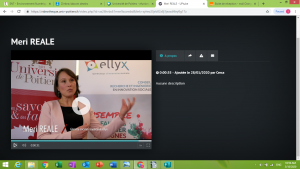
Follow this link to play the video
« … for us, the research laboratories of the Maison des Sciences de l’Homme et de la Société, the LabCom DESTINS is a real step forward in the realization of our research work… (Dominique Royoux, director of LabCom)
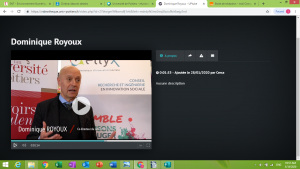
What is a “LabCom”, a joint laboratory?
It is a funding instrument that supports partnership research, including technology transfer, and also supports competitiveness. This type of funding instrument supported by the ANR aims to support any initiative to promote public sector research and development to partner companies in this type of arrangement with potentially a return on economic investment for the partner companies of this type of collaboration.
« … So, a LabCom is a funding instrument supported by the ANR to support research and development of public research, with potentially a return on investment for the partner company… (Pierre de Souffron, coordinator of the ANR’s LabCom program)
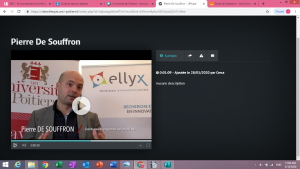
Follow this link to read for the video
« … this LabCom is also an adventure, which requires you to get out of your comfort zone, the traditions that you had been able to put in place… To offer teachers, researchers, staff, students, another way of working together… (Frédéric Chauvaud, former director of the MSHS in Poitiers)

The first MSHS laboratories involved in the DESTINS LabCom
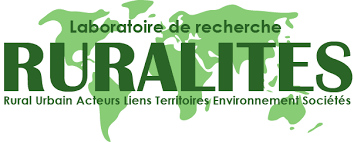
http://crief.labo.univ-poitiers.fr/axes-recherche/
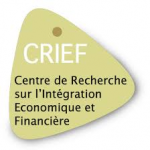
https://cerege.iae.univ-poitiers.fr/thematiques
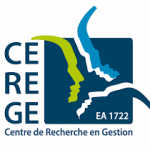
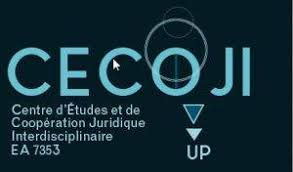
About the LabCom DESTINS
DESTINS is the first LabCom dedicated to social innovation in France: it is a specific object that must be observed in a plural way. A public conference, an interview with an innovative media, a presentation in a CNRS bulletin: from these different points of view, the project will be better understood.
Eloi Laurent, economist, author of L’impasse collaborative. For a True Economy of Cooperation (ed. Les Liens qui Libérent), gave the conference “cooperation and trust in the twenty-first century” at the inauguration of the LabCom on January 24, 2020: link to its slideshow.
http://mshs.univ-poitiers.fr/wp-content/uploads/sites/122/2020/02/Conf-Poitiers-Destins.pdf

« … in all this represents about thirty people: Ellyx employees, researchers, lecturers, doctoral students and interns mobilized by the university… (presentation of the LabCom DESTINS by Sébastien Palluault, from scop ELLYX, co-director of the LabCom, on the news site VIVANT LE MEDIA).
https://vivant-le-media.fr/destins-laboratoire-commun-innovation-sociale/
« … Our objective is to establish a real methodological guide for deciphering emerging phenomena in French society, thanks to an interdisciplinary approach… (presentation of DESTINS, by Dominique Royoux, director of LabCom, in the “CNRS Innovation Letter”).
https://www.cnrs.fr/lettre-innovation/actus.php?numero=571
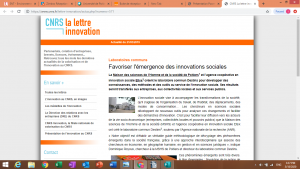
On November 8, 2019, the University of Poitiers and the IEAQ (Institute of Acadian and Quebec Studies) officially joined the international network of Senghor Chairs of the Francophonie: following a presentation of the activities of this university research institute to the President, Mrs. Füsun Türkmen, and to the members of the International Network of Senghor Chairs at Galatasaray University, in Istanbul, a Senghor Chair in North American Francophonie has been awarded to Mrs. Ariane Le Moing, Director of the IEAQ.
The International Network of Senghor Chairs of La Francophonie aims to network French-speaking territories in order to train in institutional Francophonie, but also to work independently on the Francophonie. In 2018, the Network became an INGO advisory to the International Organisation of La Francophonie (OIF).
The Network has four main missions:
The establishment of this large-scale space for reflection in the humanities and social sciences on the various aspects and issues of the Francophonie thus concretizes the expertise of the University of Poitiers in this field. This Senghor Chair in North American Francophonie will also allow the IEAQ to structure scientific actions from a pluri- and interdisciplinary perspective, and will facilitate the establishment of new research and training collaborations (including inter-chair collaborations). Finally, the Chair will contribute to a greater outreach of activities devoted to the study of the Francophonie of yesterday and today, in the North American space and/or through the prism of comparative approaches, and in the face of the issues of cultural diversity and multilingualism in a context of globalization.
4 ERDF projects from 20/01/2016 to 30/11/2018 with the financial participation of the European Union via the ERDF.
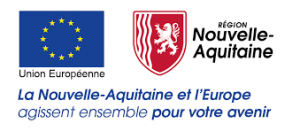
INSECT 1: Development resources and new socio-territorial dynamics
The Development Resources and New Socio-Territorial Dynamics project is part of the CPER program Social, Economic and Cultural Innovation in Changing Territories. By focusing on the effects of proximity, this project analyzes the changes concerning new forms of financing and activities, and the responses of public policies in terms of climate change. The analysis mainly focuses on land from the Poitou-Charentes territories, with the aim of extending it to the whole of Nouvelle-Aquitaine. The project strengthens research capacities through the creation of an observatory of public policies for the adaptation of territories to change, an observatory of short-food circuits, and contributes to the development of social innovation by dealing with new forms of economy.
The general objective sought by the project leader is to provide decision-makers and economic actors, as well as institutional actors, with elements of understanding of socio-territorial dynamics as well as decision-making tools regarding the strategies and policies to be implemented. To achieve this, we have broken down the operation into several specific objectives according to the actions we will present above:
Action 1: Funding and territories
This action has 3 objectives:
Action 2: Changing territories and public policies: climate change and food geo-economics
This action has 2 objectives:

Laboratories involved :
CRIEF Centre for Research on Economic and Financial Integration
CEREGE Centre for Research in Management
GRESCO
RURALITES
INSECT 2: Education, training, health and social inclusion
The objective of this project is to analyse how to better rely on human capital for development, by addressing the factors that hinder social inclusion: inequalities in access to academic success, professional integration, and health.
With the overall aim of better understanding the factors that hinder social inclusion and proposing ways to address the difficulties, the project sets threemore targeted objectives.
Objective 1: Improve learning
The aim is to remove the barriers related to academic difficulties, at all levels, including that of the transition from high school to university: by a better understanding of the learning processes on the one hand, and by relying on digital tools to develop tools for assessment and tools for learning.
Objective 2: Addressing the obstacles to integration
Integration is approached in connection with educational and training pathways, taking into account inequalities between individuals. How do these inequalities intervene in school evaluation, how do they influence integration, in what legal contexts does the integration process take place?
Objective 3: Facilitate access to health and autonomy
In order to contribute to a better social inclusion of people in difficulty, in connection with health, three areas will be addressed:
The renunciation of care for people in precarious situations
The question of the autonomy of people with mental or psychological disabilities
Therapeutic education for patients with serious pathologies
Laboratories involved :
CAPS Clinic of the Act and PsychoSexuality
CeRCA Centre for Research on Cognition and Learning
CRIEF Centre for Research on Economic and Financial Integration
FoReLL Forms and Representations in Linguistics and Literature
GRESCO Group for Research and Sociological Studies of the Centre West
IDP Institute of Public Law
IHD Institute of Legal History
TECHNE TECHnologies Numériques pour l’Education

INSECT 3 bis: Cultural and educational enhancement of digitized heritage data
The operation is part of a framework of scientific analysis of socio-cultural phenomena, in particular through the conservation, exploitation and enhancement of documentary, heritage and living collections. In connection with information technologies, the programme intends to design new methods of learning and training, to enhance tangible and intangible heritage, and to explore original avenues in the field of the history of artistic creation, citizen tourism and political history.
Indeed, in the face of the massification of digitized heritage data made available in digital environments, it is necessary to propose, through a transdisciplinary analysis in the humanities and social sciences, a new approach to this documentation that can be consulted by as many people as possible. It is also necessary to produce analytical reflections on the educational and cultural impacts of these new possibilities of access to data.
The operation has several objectives:
– to take stock of the conditions for the conservation and availability of archives and heritage collections of research in the humanities, or of scientific collections gathered in universities;
– to enhance and adapt documentary collections to the needs of education and culture for all (motivation and tourist demand in particular);
– rethinking the logic of heritage, transmission and teaching in the digital age;
– to nourish and enlighten the citizen debate on education, artistic creation, contemporary political issues echoing the socio-legal-cultural realities of the past.
Laboratories involved :
CRIHAM (Centre for Interdisciplinary Research in History, Art History and Musicology)
FORELL (Forms and Representations in Linguistics and Literature)
The operation “Cultural and educational enhancement of digitized heritage data” is based on 4 actions that we will present below:

INSECT 3: Innovation, cultural and creative industries
The “” operation focuses on securing and enhancing the value of intellectual property in the digital economy. The objectives of this operation are to:
Poitou-Charentes is home to a significant activity linked to the cultural and creative industries: the 21,833 establishments (cultural facilities and companies) present employ nearly 60,000 people. The sector is characterized by VSEs and SMEs that constitute a structurally fragile network of skills working in an economy that has been completely disrupted by the development of digital technology, from the design to the distribution of cultural works and products. In a region focused on image, digital technology and design, as well as on data processing (data, signals, image, video, sound), the research project aims to establish a one-stop shop – LA CLINIQUE DU NUMÉRIQUE – so that VSEs and SMEs in the region can access university research in order to contribute to making the emerging business models of the digital economy in the Region sustainable.
The transdisciplinary team brought together as part of this project aims to provide concrete solutions to the key issues raised by the companies and public actors that make up the cultural and creative industries located in the region:
Laboratories involved :
CEREGE Centre for Research in Management
CECOJI Centre for Interdisciplinary Legal Studies and Cooperation
FORELL Forms and Representation in Linguistics and Literature
CRIEF Centre for Research on Economic and Financial Integration


with the collaboration of the Espace Mendès-France in Poitiers
The INSECT (Social, Economic and Cultural Innovation in Changing Territories) research programme in the humanities, economic and social sciences (SHES), funded by the State-Region Plan Contract (CPER), Poitou Charentes and Nouvelle-Aquitaine, for seven years, from 2015 to 2022, is led by the Maison des Sciences de l’Homme et de la Société (MSHS) of the University of Poitiers. It marks, by the sum of the results produced, the contemporary scientific landscape in the fields covering all the SHES and the disciplines related to Literature and Languages in their broadest sense.
The CPER INSECT covers a community of 129 researchers from 11 laboratories, who are divided into the four axes of the contract and associating 261 researchers outside the University of Poitiers.
Presentation diagram of the CPER INSECT
Scientific publications of the CPER INSECT (2015-2019)
Review of the scientific publications of the CPER INSECT (2015-2019)
Scientific publications of the CPER INSECT (2020-2022)
Review of the scientific publications of the CPER INSECT (2020-2022)
Downloadable comic sheets
CPER INSECT Newsletter 1, June 2016
CPER INSECT Newsletter 2, April 2017
CPER INSECT Newsletter 3, June 2018
CPER INSECT Newsletter 4, April 2019
Book Covers, Tranche 1 (2015-2020)
| For a sociological approach to chronic disease | 2018 |
| One in three women, violence against women from yesterday to today | 2019 |
Video clips of CeRCA members as part of the CPER INSECT (2017-2018)
Book Covers, Tranche 2 (2020-2022)
| A World of Curiosities: The Natural History of Élie Richard | 2020 |
| Domestic violence | 2020 |
| Un_sur_mille | 2020 |
| Migration Positive | 2020-2021 |
| Gender inequality in vocational education and training | 2022 |
| Greenland | 2022 |
| The feet of photographers, nine photographers in Nouvelle-Aquitaine | 2022 |
| Mi Vida | 2022 |
| The Humanities and Social Sciences in All Their Forms, Collective Research in Action | 2022 |
| Time, Powers, Territory (forthcoming) | 2023 |

This ERDF project entitled INSECT-FABRICC, from 1 January 2020 to 31 December, is based on 3 actions.
| Title of the video | Speakers |
| Interactions between finance and international trade | Interview with Anne-Gaël Vaubourg |
| Learning and cognitive processes | Interview with Cyril Perret |
| What is the attractiveness of small and medium-sized towns? | Interview with Dominique Royoux |
| Evolution of tourism in France | Interview with Gilles Caire |
| Renunciation of care and student pathways | Interview with Liliane Bonnal |
| Chronic diseases and sociabilities | Interview with Ludovic Gaussot |
| Cabinets of curiosities and sociabilities | Interview with Myriam Marrache-Gouraud |
| Creates social trajectories | Interview with Gilles Moreau |
FABRICC Video Clips
| Title of the video | Speakers |
| Student Engagement | With Andrea Arosteguy |
| A permanent digital exhibition | With David Garandeau |
| Design the app | With Charles-Alexandre Delestage |
| The web-semantics | With Pascal Monier |
| Student Engagement | With Nolwenn Lautrédou |
| Information in virtual reality | With Jean-Marie Dallet |
| Legal aspect of creative and cultural technologies | With Jean-Christophe Pasco |
| Research from Perspectives – Part 1 | With Valérie-Inès de la Ville |
| Research from Crossed Perspectives – Part 2 | With Valérie-Inès de la Ville |
Video clips of the Espace Mendès France
| Title of the video | Speakers |
| The mechanisms of inflation | With Marc Pourroy |
| A “daisybly desirable” night | 2020 |